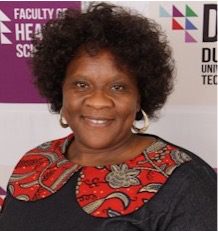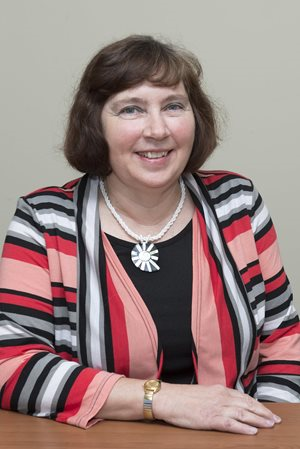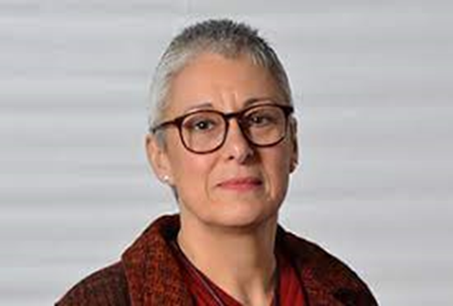
Deputy Vice Chancellors Lead the Implementation of Student Success Initiatives
Takalani Rambau and Maryla Bialobrzeska
Enabling historically disadvantaged students, not only to access higher education but to enjoy the benefits of quality education and success, is one of the most pressing social justice issues in South Africa (Professor Ruksana Osman, DVC: Academic, Wits).
Four common themes emerged from the presentations made by the Deputy Vice Chancellors (DVC’s) responsible for teaching and learning in five Siyaphumelela – We Succeed, Partner institutions during the virtual Siyaphumelela Student Success Conference held from 22-25 June 2021.
The key role played by the university executive leadership in embedding a culture of student success in the university; the importance of using data to drive an evidenced-based approach to designing student success interventions; the enhanced impact of promoting an integrated approach to student success interventions; and reflections on the value derived from working within the Siyaphumelela Network 2.0 collaborations.
Executive leadership as key to achieving student success
The leadership and support of the university executive is key to the effective implementation of Student Success initiatives. This message came though unequivocally as the DVCs in five Siyaphumelela partner universities showcased their student support interventions. Their presentations all point to the fact that the involvement of institutional leadership facilitates the systematic integration and institutionalisation of a holistic approach to student support.
Planned integration of student support work being undertaken across various units and structures within each university to maximise the efficacy of student success initiatives was a dominant and recurring theme.

Professor Nokuthula Sibiya, DVC: Teaching and Learning, reported that the Siyaphumelela student success initiative is aligned to and embedded in, the Durban University of Technology (DUT) institutional strategic plan and vision - ENVISION2030.

The University of the Witwatersrand (Wits) the DVC: Academic, Professor Ruksana Osman, has taken the lead in setting up a high level cross cutting Student Success Committee. This committee has ensured that student success is part of the Wits institutional agenda at the highest levels of governance. The work of the Student Success Committee is a standing agenda item on the Senate Teaching and Learning subcommittee chaired by Professor Osman.
Overall, the importance of leadership championing student success and integration of such interventions is well articulated by Professor Foxcroft, DVC: Teaching and Learning at Nelson Mandela University (NMU) when she states that, it is necessary for “the whole university to see student success as a priority and as a key factor in institutional performance.”
Knowing and using institutional data to drive student success
All five DVCs also highlighted the important role played by collecting, analysing and using data to drive institutional decisions regarding student success interventions.

The use of data analytics through a Risk Analysis and Detection to Assist and Retain students (RADAR) system successfully used to support student success, was described by Professor Cheryl Foxcroft, who went on to share how NMU negotiated the negative impact of the Covid-19 pandemic during the 2020 lock down by using the RADAR system as well as other data collection and analysis tools to support evidence based decision making and planning. This enabled the institution to track students in different learning pathways; to adapt and adjust plans and learning environment; and to assist with targeting necessary academic performance support.
The benefits of implementing the student success support practices and approaches promoted by the Siyaphumelela initiative, is demonstrated in the 2020 improved institutional performance results. Despite the Covid-19 pandemic, NMU attained 84% student course pass rate. This was 5 or 6% higher than in 2019 and resulted in a larger number of students graduating in 2020 than had been the case in 2019.
Professor Osman reported that Wit’s participation in the Siyaphumelela initiative enabled them to use data analytics to inform evidence based decision making. Applying this approach, Wits has developed and refined a biographical questionnaire which is used as a means of identifying barriers to success as well as to predict student factors that enable resilience and success.
Sibiya (DUT) and the University of Western Cape (UWC) Professor Vivienne Lawack, Acting Vice Chancellor and DVC for Teaching and Learning also both reported on how, at their respective institutions, the student success agenda focused on data and evidence driven decision making.

As a chair of the Data Analytics Student Success Committee, Professor Lis Lange, DVC: Teaching and Learning at the University of Cape Town (UCT) stressed UCT’s commitment to using data analytics for identifying student challenges and for designing appropriate support to close achievement gaps and strengthen students’ performance.
Strengthening impact by enabling integration of student success interventions
At UCT, the student success team championed by the Siyaphumelela project manager, Riashna Sithaldeen, have focused on designing an integrated approach that underpins all development of student success interventions. A host of existing student support services that had, until 2020, been operating in siloes, have since been integrated.
While the impact of DUT’s involvement in the Siyaphumelela programme is manifested in the benefits derived by students through a number of linked interventions such as the Sikusekele project advancing holistic student support, Phakimpilo meaning serve life, unsilencing student voices and Vuna Leadership Academy.
Professor Vivienne Lawack, from the University of the Western Cape (UWC) also stressed the importance of breaking down of operational silos by intentionally working across institutional units.
Promoting the power of collaborations
Reporting on the positive impact of participation in the Siyaphumelela Network as a partner institution, UCT highlighted that participation it:
- the opportunity to learn from other Siyaphumelela Network institutions through the National Service workshops, regional network activities, attending the Achieving the Dream, US-based conference and the local Siyaphumelela annual conference.
- and promoted collaborations between various different institutional units, experts and individuals all linked by the aim of improving student success.
- the opportunity to embed students’ participation in key institutional structures.
- a platform, resources and the motivational drive to sustain support student success, thus supercharging a long held vision of evidence based decision making at UCT.

While Professor Lawack detailed the achievements realised at UWC as a result of the partnership and engagement with the other universities in the Siyaphumelela Network. These include interventions in four main areas of student support:
- of the UCT data landscape (tool) and strengthening the data warehouse to support data driven decision making;
- the First Year Experience by overseeing the rollout of an efficient tracking systems to identify at risk students;
- of student performance in high priority modules, decreasing student success gaps; and
- awareness of mental health and wellbeing issues and strengthening related student services.
The four key themes highlighted in the presentations made by the DVCs of the Siyaphumelela Network Partner Institutions serve to emphasise the value of executive leadership in championing student success planning and interventions. The expanded use of evidence-based decision making to increase student attainment and integration of various student success interventions outlined in the DVC’s presentations support the attainment of diminished racial equity gaps, thereby contributing to positive changes within the South African Higher Education system as a whole.

